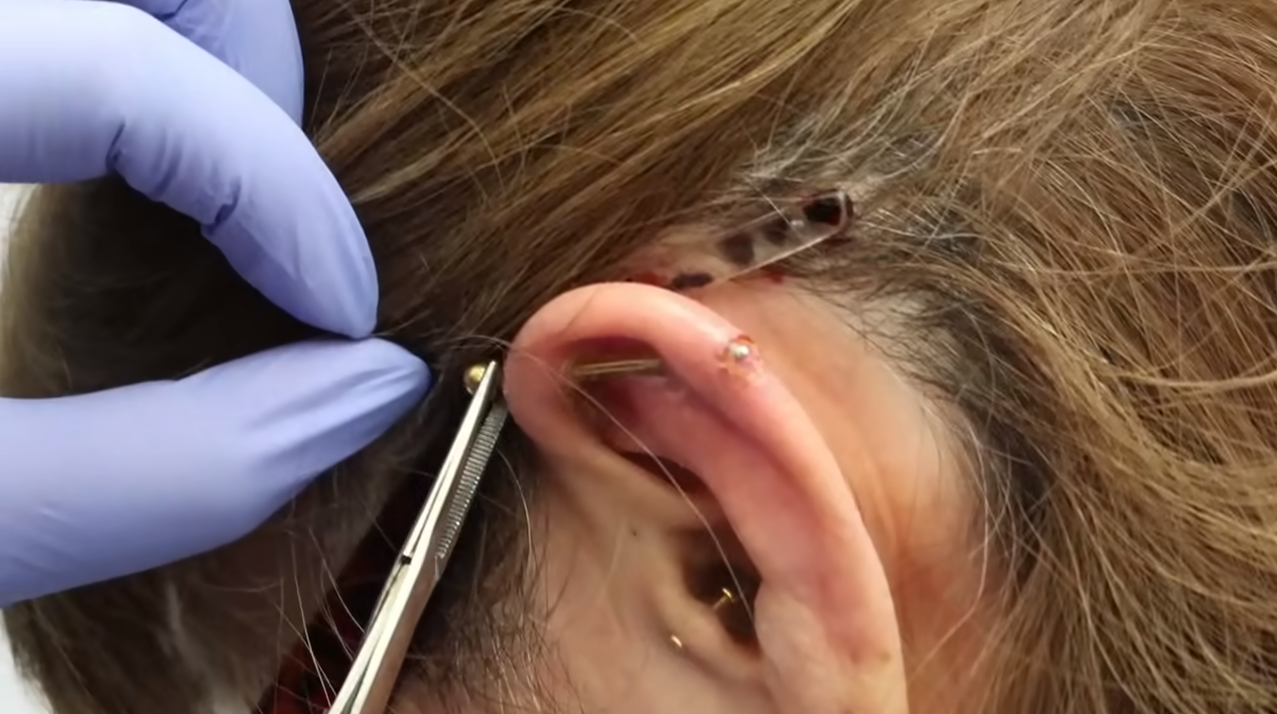If a piercing is infected, it is mostly unpleasant and sometimes painful. What you can do and when you should definitely go to the doctor.
A Piercing ignites gladly times after it was stung fresh, but also later it can come to inflammations.
Infected piercing: Cause
A possible cause could be an allergic reaction to the piercing or a lack of hygiene – due to a lot of touching, but also when piercing. Also constant friction could irritate the piercing and lead to an inflammation, e.g. the bra at nipple piercing.
Symptoms
Your body has been inflicted with the sting of the piercing – that the body reacts is normal at first. But some signs are a warning signal. In case of an inflammation the following symptoms can appear:
- Redness: The skin around the piercing reddens strongly.
- Heat: The spot is warmer than normal.
- Swelling: The area of the piercing swells.
- Pus: If the inflammation spreads, pus can form.
- Pain: The piercing hurts with pressure or touch.
Infected piercing: You can do that
If your piercing is inflamed, the following measures can help you:
- Salt water: You can easily make your own salt water solution. To do this, add about one teaspoon of salt to a glass of lukewarm water. Dip a cotton wool pad in the solution and carefully brush the inflamed area with it.
- Chamomile tea: Chamomile tea can also help if your ear hole is inflamed, as it has an anti-inflammatory and antibacterial effect. Here too, moisten the area carefully with a soaked pad.
- Care spray: You normally get such a disinfecting spray directly at the piercer, which you should apply about twice a day on the piercing site.
- Wound gel: Also a wound gel can support the healing.
Caution: If your inflamed piercing is festering, you should go directly to the doctor.
What to do so that the piercing does not get infected?
The probably most important condition is the clean piercing of the piercing. How do I recognize a good piercer? Among other things by the fact, that the person informs you about risks, asks you about diseases and allergies and advises you regarding jewellery. Furthermore the used materials have to be sterilely packed and the piercer should wear new gloves while piercing. And: A good piercer explains you how to take care of the fresh wound and the piercing properly!
Also the daily care of the freshly pierced piercing is important. In the beginning the wound should be disinfected twice a day, in the morning and in the evening. The whole healing time depends on the pierced area. You can orient yourself by these times:
- Earlobes: 6 weeks to 3 months
- Cartilage (e.g. helix): up to 5 months
- Eyebrows: 6 to 8 weeks
- Nasal wings: 2 to 4 months
- Lips: 2 to 3 months
- Tongue: 4 weeks
- Navel: 1 to 12 months
- Nipples: 6 to 32 weeks
Care of the piercing: That is still important
Follow the care instructions of the piercing studio. Avoid sauna, solarium and swimming pool for four weeks after the piercing. Do not change or remove the plug before the healing is completed. Turn the ring or stick at a freshly pierced piercing regularly, so that it does not grow together. Unless the piercer recommends something else for your piercing.
Try not to touch the piercing all the time and if, then only with disinfected hands. In some cases it is useful to protect the piercing with a plaster, e.g. during sports, if the clothes could additionally rub and irritate the spot. With a belly button piercing for example wide clothing is helpful.
When to the doctor with an infected piercing?
If you have the impression that the piercing is infected, do not wait too long, you have to see a specialist. If your piercing is festering, you should definitely see a doctor. Your doctor can recommend you for example an antibiotic in form of an ointment.

